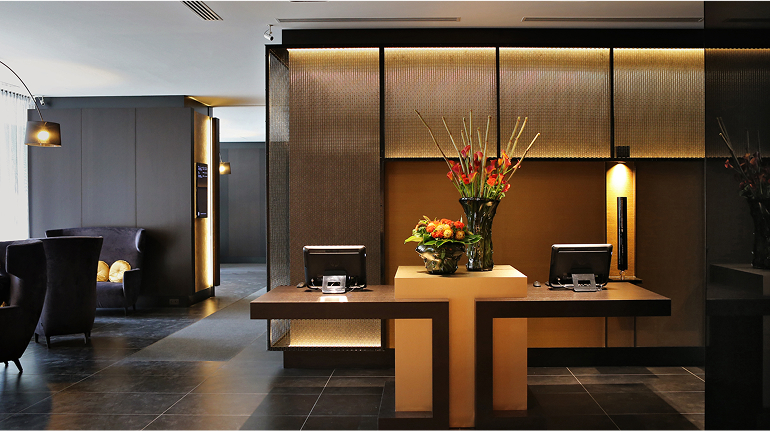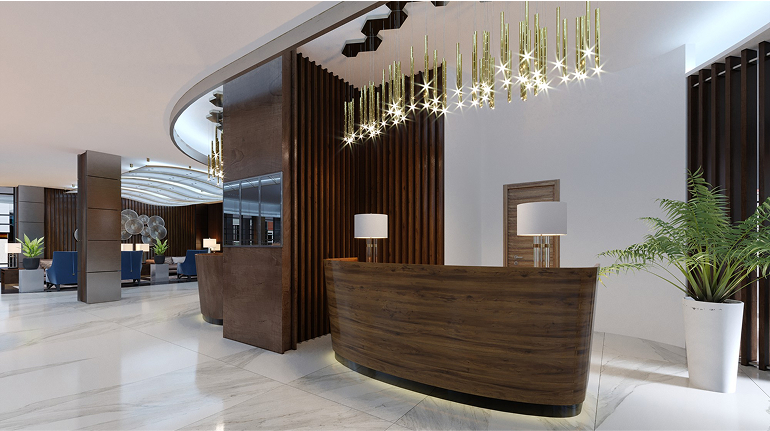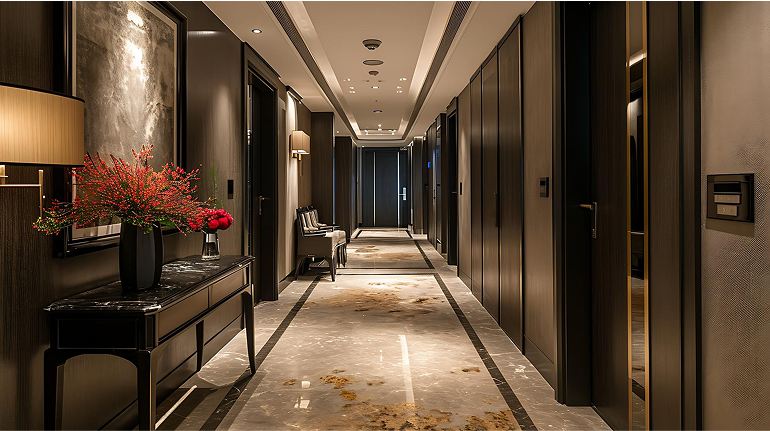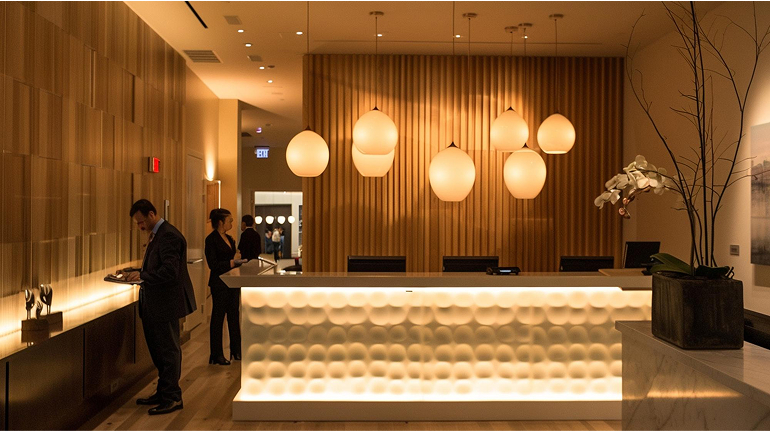The hospitality industry is a dynamic and fiercely competitive arena where success hinges on more than just providing a comfortable stay. Hotels face fluctuating demand, seasonal shifts, and an ever-growing array of booking platforms, all while competing with both local rivals and global chains. In this high-stakes environment, profitability isn’t guaranteed—it’s earned through strategic decision-making and a keen understanding of market forces. Optimizing revenue has become a cornerstone of survival and growth, as hoteliers strive to balance occupancy, pricing, and guest satisfaction in an increasingly complex landscape.
At the heart of this challenge lies hotel revenue management, a disciplined approach to maximizing income by aligning supply with demand. It’s no longer enough to simply fill rooms; hotels must adapt to changing traveler behaviors, leverage data insights, and capitalize on every revenue opportunity—whether that’s room rates or ancillary services like dining and spa offerings. The difference between thriving and merely scraping by often comes down to how effectively a property manages its revenue streams. This is where expertise and innovation make all the difference.
This article explores what hotel revenue management entails, why it’s a critical tool for success in today’s hospitality industry, and how hoteliers can leverage proven strategies and professional services to maximize revenue. From understanding key drivers to implementing actionable tactics, we’ll dive into the essentials of revenue management—and show how partnering with experts like MBE Hospitality Management can elevate your hotel’s financial performance to new heights.
- What is Hotel Revenue Management?
- Why Is Hotel Revenue Management Important?
- Why Do Hoteliers Use Revenue Management?
- What Are the Revenue Drivers for the Hotel Industry?
- What Is the Role of a Revenue Manager in a Hotel?
- Hotel Revenue Management Elements and Strategies
- Key Hotel Revenue Management Strategies
- How to Maximize Hotel Revenue?
- Hotel Revenue Management Services
- Conclusion
What is Hotel Revenue Management?

Hotel revenue management is the strategic art and science of maximizing a property’s income by optimizing pricing, inventory, and demand. At its essence, it’s about making data-driven decisions to ensure every room, service, and opportunity contributes to profitability. In an industry where no two days are the same—think peak holiday rushes versus quiet midweek lulls—revenue management provides the framework to adapt and thrive. It’s a proactive approach that goes beyond filling rooms; it’s about generating the highest possible return from every guest interaction.
This concept didn’t originate in hotels. It traces its roots back to the airline industry in the 1980s, when carriers began using sophisticated pricing models to fill seats without slashing fares across the board. They realized that selling a seat too cheaply to an early booker could mean losing out on a last-minute traveler willing to pay more. Hotels adopted this mindset, adapting it to their unique needs—variable room types, seasonal trends, and ancillary revenue streams like dining or events. What started as a borrowed idea has since evolved into a cornerstone of modern hospitality, fueled by technology and real-time data.
At its core, hotel revenue management is about selling the right room to the right guest at the right time for the right price. This means forecasting demand, adjusting rates dynamically, and targeting specific market segments—whether it’s business travelers needing a weekday suite or leisure guests booking a weekend getaway. Success hinges on precision and agility, balancing occupancy with profitability. Our approach at MBE Hospitality Management reflects this philosophy: we leverage advanced analytics and decades of industry expertise to craft tailored strategies that don’t just react to the market but anticipate it. By aligning pricing, distribution, and guest insights, we help hotels unlock their full revenue potential, turning complexity into opportunity.
Why Is Hotel Revenue Management Important?

In the fast-paced world of hospitality, revenue management isn’t just a nice-to-have—it’s a necessity. Hotels operate in an environment where demand can swing wildly, competition is relentless, and profit margins are often razor-thin. Effective revenue management directly impacts a property’s bottom line, boosting gross operating profit by turning potential losses into gains and ensuring long-term sustainability. It’s the difference between a hotel that merely survives and one that thrives, especially in an era where guests have more booking options than ever before.
The financial stakes are high. Without a strategic approach to pricing and inventory, hotels risk leaving money on the table—whether it’s underpricing rooms during peak demand or failing to fill them during slow periods. Revenue management mitigates these risks by optimizing key metrics like occupancy, average daily rate (ADR), and revenue per available room (RevPAR). For example, a well-timed rate adjustment can capture higher-paying guests during a local event, while a targeted promotion can boost bookings in the off-season. Beyond rooms, it also maximizes ancillary revenue—think dining, spa services, or event spaces—turning every guest stay into a multifaceted profit opportunity. The result? Increased gross operating profit and a buffer against economic downturns or unexpected disruptions.
The hotel industry’s unique challenges make this discipline even more critical. Seasonality, unpredictable demand (like last-minute cancellations or sudden surges), and fierce competition from both traditional rivals and platforms like Airbnb demand agility. Revenue management equips hoteliers to navigate these hurdles with confidence, using data to forecast trends and adjust strategies in real time. It’s about staying ahead of the curve, not just keeping up.
MBE Hospitality Management understands these dynamics. Our expertise helps hotels tackle volatility head-on, blending advanced forecasting tools with industry insights to drive consistent results. In a landscape where every decision counts, revenue management isn’t optional—it’s the backbone of financial success, empowering properties to adapt, compete, and prosper no matter the circumstances.
Why Do Hoteliers Use Revenue Management?

Hoteliers turn to revenue management because it’s the key to unlocking profitability in an industry defined by constant change. Staying competitive isn’t just about offering a great guest experience—it’s about making smart, strategic choices that keep a property ahead of the pack. Revenue management provides the tools to do just that, enabling hoteliers to adapt to market shifts, meet guest expectations, and maximize every revenue opportunity. It’s a practical necessity in a world where standing still means falling behind.
One major reason is the ability to respond to dynamic market trends. Guest behavior evolves—business travelers might book shorter stays, while leisure guests chase last-minute deals. Revenue management allows hoteliers to pivot quickly, adjusting pricing or promotions to capture these shifting segments. It’s also about meeting guest expectations without sacrificing profit. For instance, offering value-driven packages during a slow period keeps rooms occupied while maintaining perceived value. This balance is crucial in an era where travelers compare options across dozens of platforms in seconds. Revenue management ensures a hotel remains attractive and profitable, no matter the season or competitive pressure.
Data-driven decision-making is another core driver. Gut instincts alone can’t navigate the complexities of demand forecasting, competitor pricing, or channel distribution. Revenue management replaces guesswork with precision, using analytics to predict occupancy trends, set optimal rates, and identify untapped revenue streams like upselling or events. It empowers hoteliers to act with confidence, backed by real-time insights.
What Are the Revenue Drivers for the Hotel Industry?

In the hotel industry, revenue isn’t a single stream—it’s a tapestry woven from multiple drivers that work together to shape a property’s financial health. Understanding these drivers is essential for any hotelier aiming to boost profitability, and it’s where strategic revenue management shines. The primary metrics—occupancy rates, average daily rate (ADR), revenue per available room (RevPAR), and ancillary services—form the backbone of hotel income. Each plays a distinct yet interconnected role, and at MBE Hospitality Management, we focus on optimizing them to deliver maximum value for our clients.
Occupancy rate, the percentage of rooms filled, is the starting point. High occupancy signals demand, but it’s only half the equation—filling rooms at rock-bottom rates can erode profits. That’s where ADR steps in, measuring the average price per occupied room. A higher ADR boosts revenue, but pushing it too far risks empty rooms, highlighting the delicate balance between the two. RevPAR ties them together, calculating revenue per available room (occupied or not) to provide a holistic snapshot of performance. It’s the gold standard for assessing how well a hotel converts its inventory into income, whether through packed houses at moderate rates or premium pricing with fewer guests.
Beyond rooms, ancillary services—like dining, spa treatments, or event bookings—add another layer of revenue potential. These offerings can transform a stay into a full experience, driving profits even when room rates are fixed. For example, a guest paying for a meal or a late checkout contributes directly to the bottom line. The interplay is clear: strong occupancy fills the restaurant, while a high ADR might reflect guests with more spending power for extras.
MBE Hospitality Management analyzes these drivers in tandem, crafting strategies that elevate each metric without compromising the others. Using data insights and market expertise, we help hotels fine-tune pricing, target high-value guests, and amplify ancillary income—ensuring every lever of revenue works harder and smarter.
What Is the Role of a Revenue Manager in a Hotel?

A revenue manager in a hotel is the mastermind behind the numbers, steering the property toward maximum profitability through strategic oversight and execution. Their role is multifaceted, blending pricing, forecasting, market analysis, and strategy implementation into a cohesive plan that keeps revenue flowing. It’s a position that demands both big-picture vision and granular attention to detail—ensuring every decision aligns with the hotel’s financial goals. MBE Hospitality Management steps into this role for our clients, bringing expertise that transforms complexity into results.
The core responsibilities start with pricing: setting rates that reflect demand, competition, and guest willingness to pay. This isn’t static—revenue managers adjust dynamically, raising rates during a sold-out weekend or offering discounts to fill a quiet Tuesday. Forecasting is equally critical, using historical data and market trends to predict occupancy and revenue potential. They also dive into market analysis, tracking competitors’ moves and identifying opportunities to capture more bookings. Implementation ties it all together—whether it’s tweaking distribution channels, launching promotions, or optimizing inventory to avoid overbooking mishaps. Every action is deliberate, aimed at squeezing the most value from every room and service.
Success in this role hinges on specific skills. An analytical mindset is non-negotiable—revenue managers live in spreadsheets and data dashboards, spotting patterns others miss. Industry knowledge keeps them grounded, understanding how local events or seasonal shifts impact demand. Adaptability is key too; markets change fast, and rigid plans falter.
Our team at MBE Hospitality Management embodies these traits, acting as an extension of your hotel’s leadership. We don’t just manage revenue—we elevate it, applying decades of experience and cutting-edge tools to deliver tailored solutions. From daily rate adjustments to long-term strategies, we handle the heavy lifting so hoteliers can focus on what they do best: creating exceptional guest experiences.
Hotel Revenue Management Elements and Strategies

Hotel revenue management is built on a foundation of key elements that, when expertly combined, form the strategies driving profitability. It’s not a one-size-fits-all approach—each component requires careful calibration to suit a property’s unique market, goals, and guest base. We view these elements as the building blocks of success: demand forecasting, pricing strategies, distribution channel management, inventory management, and competitor analysis. Together, they create a roadmap for optimizing revenue in an industry where adaptability is everything.
Demand forecasting is the starting point. By analyzing historical data, seasonal patterns, and upcoming events—like a local festival or conference—we predict market demand, determining when guests will book and how much they’ll spend. This isn’t guesswork; it’s a precise science that informs every other decision. Pricing strategies flow directly from these insights. We set rates that flex with market demand—charging a premium when rooms are scarce or enticing early bookers with value-driven deals during lulls. Dynamic pricing keeps us nimble, ensuring rates reflect real-time market conditions rather than a static calendar.
Distribution channel management is another critical piece. Hotels don’t just sell rooms through their front desk—online travel agencies (OTAs), direct bookings, and third-party platforms all play a role. We optimize these channels to maximize reach and revenue, balancing commissions with profitability. Inventory management ensures we’re making the most of every room, allocating availability across channels and adjusting for overbooking or cancellations to keep occupancy high without overselling. For instance, pushing direct bookings reduces OTA fees, while still leveraging their visibility to fill gaps. Competitor analysis rounds out the toolkit. By monitoring rival pricing, promotions, and occupancy trends, we position our clients to stay one step ahead—whether that’s undercutting a competitor during a slow week or holding firm on rates when demand spikes.
These elements fuel broader strategies that elevate a hotel’s financial performance. They enable us to segment markets—targeting business travelers with weekday packages or leisure guests with weekend add-ons—while ensuring every room and service contributes to the bottom line.
MBE Hospitality Management weaves these components into a cohesive plan, using advanced analytics and industry expertise to anticipate shifts and seize opportunities. It’s the groundwork for the actionable tactics we’ll explore next, turning theory into measurable gains.
Key Hotel Revenue Management Strategies

Hotel revenue management is built on a foundation of key elements that, when expertly combined, form the strategies driving profitability. It’s not a one-size-fits-all approach—each component requires careful calibration to suit a property’s unique market, goals, and guest base.
Demand forecasting is the starting point. By analyzing historical data, seasonal patterns, and upcoming events—like a local festival or conference—we predict when guests will book and how much they’ll spend. This isn’t guesswork; it’s a precise science that informs every other decision. Pricing strategies flow directly from these insights. We set rates that flex with demand—charging a premium when rooms are scarce or enticing early bookers with value-driven deals during lulls. Dynamic pricing keeps us nimble, ensuring rates reflect real-time market conditions rather than a static calendar.
Distribution channel management is another critical piece. Hotels don’t just sell rooms through their front desk—online travel agencies (OTAs), direct bookings, and third-party platforms all play a role. We optimize these channels to maximize reach and revenue, balancing commissions with profitability. Inventory management ensures we’re making the most of every room, allocating availability across channels and adjusting for overbooking or cancellations to keep occupancy high without overselling. For instance, pushing direct bookings reduces OTA fees, while still leveraging their visibility to fill gaps. Competitor analysis rounds out the toolkit. By monitoring rival pricing, promotions, and occupancy trends, we position our clients to stay one step ahead—whether that’s undercutting a competitor during a slow week or holding firm on rates when demand spikes.
These elements fuel broader strategies that elevate a hotel’s financial performance. They enable us to segment markets—targeting business travelers with weekday packages or leisure guests with weekend add-ons—while ensuring every room and service contributes to the bottom line.
How to Maximize Hotel Revenue?

Maximizing hotel revenue isn’t a mystery—it’s a process rooted in practical, actionable steps that any hotelier can take with the right tools and guidance. We’ve distilled this into a clear playbook: leverage technology, analyze data relentlessly, and optimize distribution channels. These steps build on the strategies we’ve honed, turning potential into profit while keeping your property competitive and guest-focused.
Start with technology—it’s the engine of modern revenue management. A revenue management system (RMS) crunches real-time data on occupancy, competitor rates, and market demand, giving you the power to adjust pricing instantly. We recommend using a robust revenue management system, paired with hotel revenue management software and a property management system (PMS), to stay ahead, ensuring you’re not just collecting data but using it to set rates that capture every opportunity.
Next, dive into data analysis. Numbers tell stories—historical booking trends reveal seasonal peaks, while guest demographics highlight who’s spending and why. We don’t stop at surface-level stats; our team digs into RevPAR trends, cancellation rates, and even weather forecasts to predict demand shifts. This isn’t about drowning in spreadsheets—it’s about finding actionable insights, like knowing when to push a midweek deal or upsell a suite.
Finally, optimize distribution channels. Your rooms sell across OTAs, your website, and third-party partners, but not all channels are equal. We fine-tune this mix, prioritizing direct bookings to cut commissions while still leveraging OTAs for visibility. A simple tweak—like a “book direct” discount—can shift the balance, as it did for a property we helped, increasing direct revenue by 15%. Partnering with us makes these steps seamless. Our expertise transforms technology, data, and channels into a unified strategy, ensuring your hotel doesn’t just maximize revenue—it sustains it.
Hotel Revenue Management Services

Hotel revenue management services are a game-changer for properties looking to boost profitability without reinventing the wheel. These professional offerings take the guesswork out of pricing, forecasting, and inventory control, delivering tailored revenue management solutions that align with a hotel’s unique goals. We understand the value of these services in today’s competitive landscape, where every booking counts and market conditions shift daily. This section dives into what these services entail and why they’re a smart investment for hoteliers.
At their core, revenue management services provide expertise and tools to optimize a hotel’s financial performance. This often includes advanced demand forecasting—using data to predict when guests will book and at what rates—alongside dynamic pricing strategies that adjust in real time. Professionals in this field also manage distribution channels, ensuring rooms reach the right audiences through OTAs, direct bookings, or partnerships, all while minimizing commission costs. Competitor analysis is another key piece, offering insights into market positioning to keep rates competitive yet profitable. The result is a streamlined approach that maximizes occupancy, ADR, and RevPAR without overwhelming in-house teams.
The benefits are clear: outsourcing to specialists saves time, reduces errors, and taps into industry expertise that might otherwise be out of reach. For smaller properties, revenue management solutions level the playing field against larger chains; for bigger hotels, they sharpen an already complex operation. Services can range from full-scale management—overseeing every revenue lever—to targeted support, like auditing existing strategies or training staff.
MBE Hospitality Management sees this as an opportunity to empower hoteliers, whether they need a comprehensive overhaul or a focused boost. In an industry where margins are tight and guest expectations are high, professional revenue management services aren’t just a luxury—they’re a strategic edge that drives sustainable growth.
Conclusion

Hotel revenue management keeps properties profitable in an unpredictable industry. From understanding its core principles to leveraging key drivers like occupancy, ADR, and ancillary services, this article has unpacked why revenue management matters and how it works. It’s about selling the right room at the right price to the right guest, every time, while staying ahead of competition and market shifts. The strategies—dynamic pricing, upselling, market segmentation—and practical steps like using data and optimizing channels offer a clear path to success. Professional services only amplify this, bringing expertise to the table for hoteliers at any scale.
MBE Hospitality Management is passionate about helping hotels turn challenges into opportunities. Revenue management isn’t just about surviving—it’s about thriving, whether you’re filling rooms during a slow season or capitalizing on a peak weekend.
Ready to elevate your hotel’s financial performance?
Contact us today to explore how we can help. In a world where every decision shapes your bottom line, mastering revenue management is the key to not just staying in the game, but winning it.
